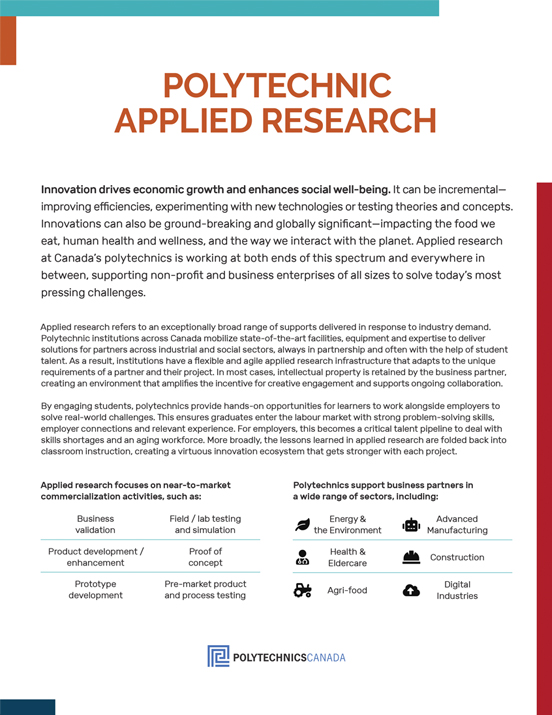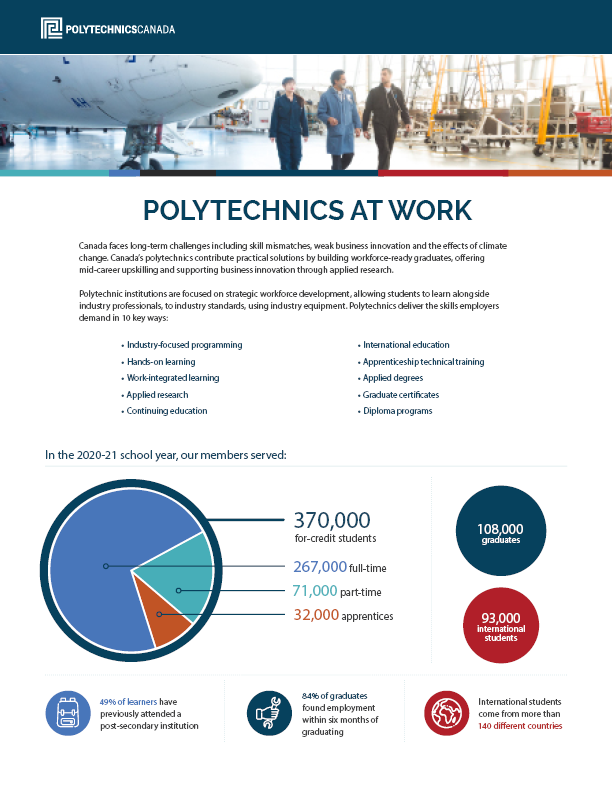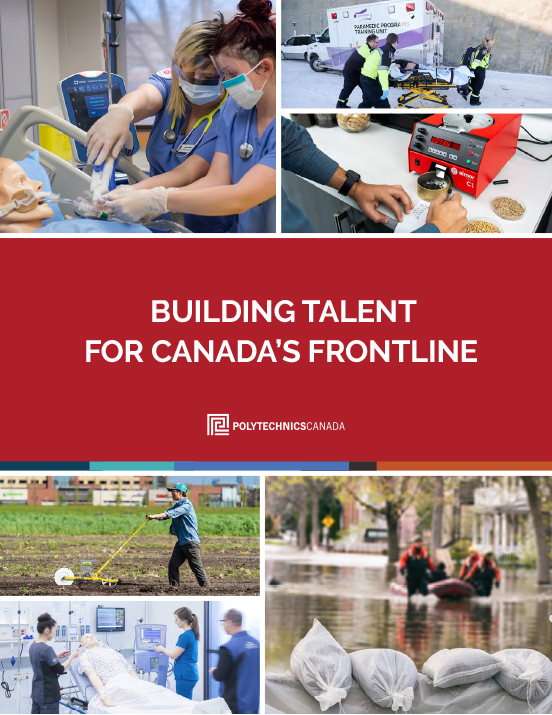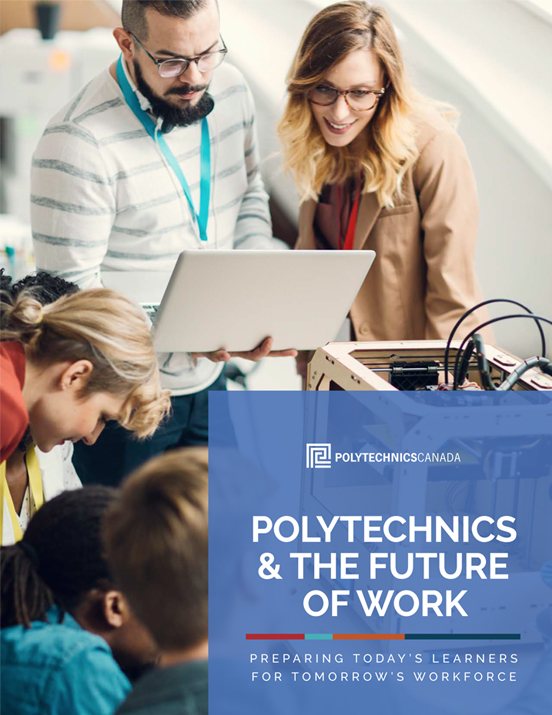The critical role of Canada’s frontline workforce has never been more apparent than during the COVID-19 pandemic. In industries like healthcare and emergency response, technology, agriculture and construction, Canadians rely on the essential workers who keep the country fed, functioning, safe and healthy. When it comes to developing the skills of Canada’s frontline workforce, polytechnics are the post-secondary institutions feeding this talent pipeline.
Preparing Canada’s frontline workforce is no easy task. Training essential workers requires developing a combination of skills, techniques and knowledge that prepare students to respond to dynamic workplace realities. An applied, hands-on approach to learning that is aligned with sector-specific needs includes workplace experience, simulation, virtual and augmented reality, and practice.
In this publication, learn more about the credentials, programs and professional development opportunities that contribute talent to our frontlines by:
- Keeping Canada healthy
- Keeping Canada safe
- Keeping Canada fed
- Keeping Canada connected








